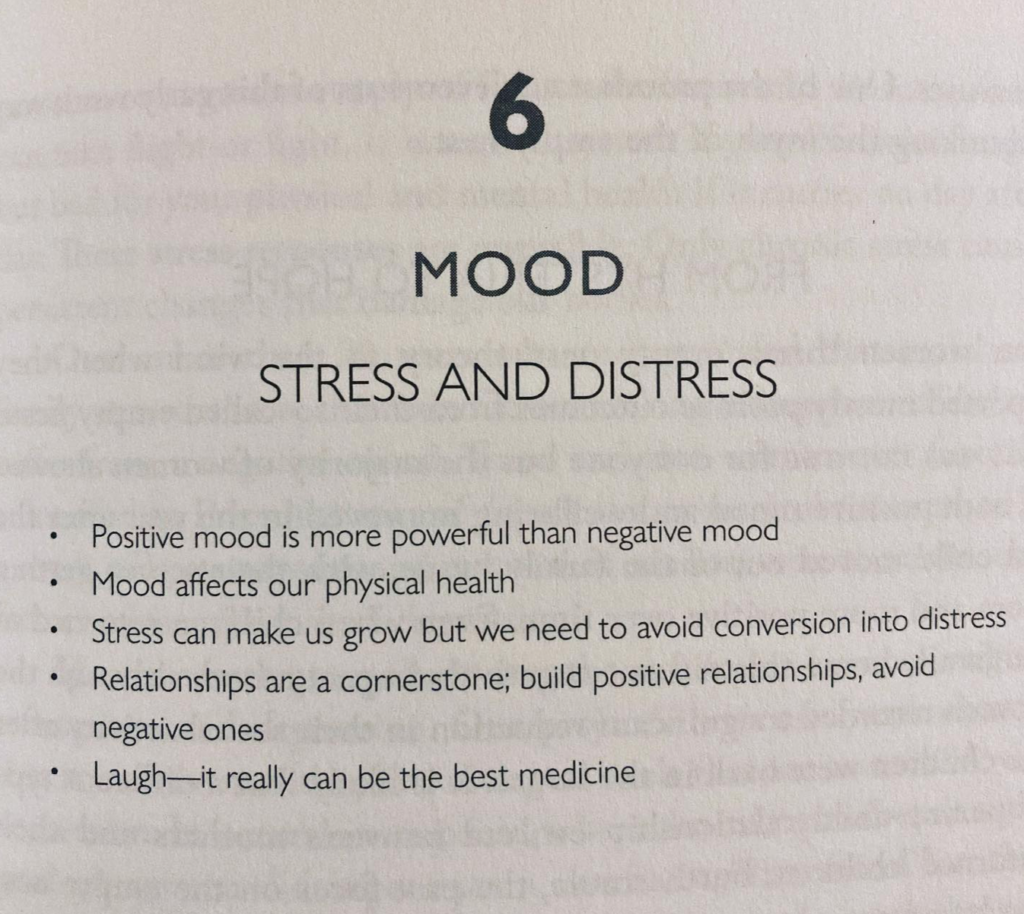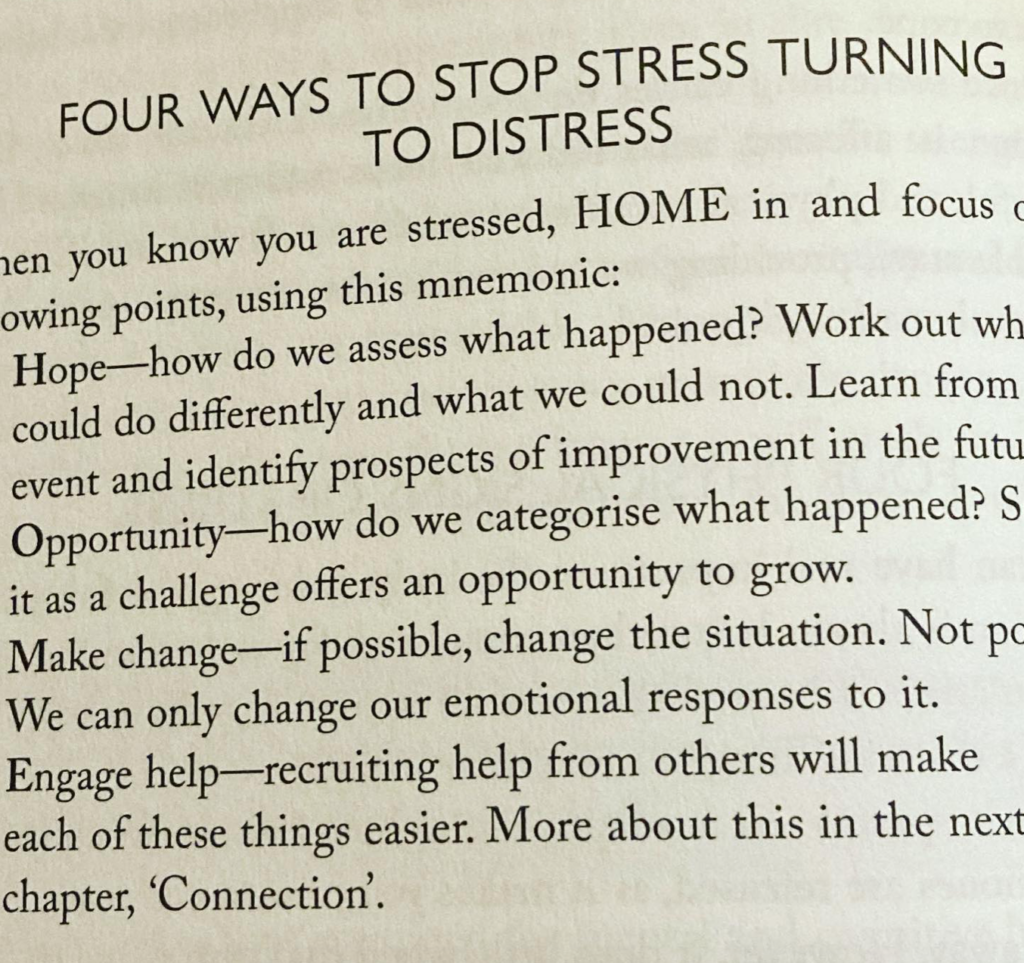In ‘Mood – Stress and distress’ the authors says that nothing is more important than being optimistic”. A positive attitude is key.


Mood – Stress & distress. In this chapter, the author shares that her proudest moment was debunking “the myth of the empty nest” as an explanation for menopausal “emotional vulnerability & hysteria”! In fact, her study showed the opposite, women reported better mood & wellbeing after their children left home. This is supported by 20+ years of research proving that “social & family stressors” are the main factors causing negative outcomes. The others are: financial vulnerability, surgical hysterectomy (caused by a rapid decline in estrogen) & prior depression.
Women suffer “significantly higher rates of mood disorders than men” & are 2x likely to suffer depression & anxiety. Although married men outlive single men, the same is not true for women. Perhaps because of the additional burden of caring & increased social isolation.
The stress response (‘fight or flight’) is innate & an essential response to perceived threats. However, “chronic stress causes persistent changes that damage our bodies”. A positive mood (positive thinking) is a “strong protector of our mental health”. Also, greater social connectivity (e.g. through volunteer work) results in better physical and mental health – as long as we don’t take on TOO MUCH). Avoiding distress is key, as distress affects our ability to think & leads to physical manifestations. See 2nd photo.
Physical signs of stress: Muscle spasms, loose bowel motions, stomach pain & “reaching for a crutch-caffeine, alcohol…chocolate”. Instead, drink water to rehydrate & flush the byproducts of stress away. “A shocking 60% of our women had suffered from violence or sexual abuse”, resulting in “poorer mental, physical and sexual health”. This is common “right across society and remains largely hidden and unaddressed”.Although women’s sexual function shows a decline with age and menopausal hormonal changes, women report that it’s the quality of the relationship which determines satisfaction with sex. And frequency doesn’t matter as much as quality!
This study shows that “nothing is more important than being optimistic”. A positive attitude and mood can help us cope with even the most devastating events.
